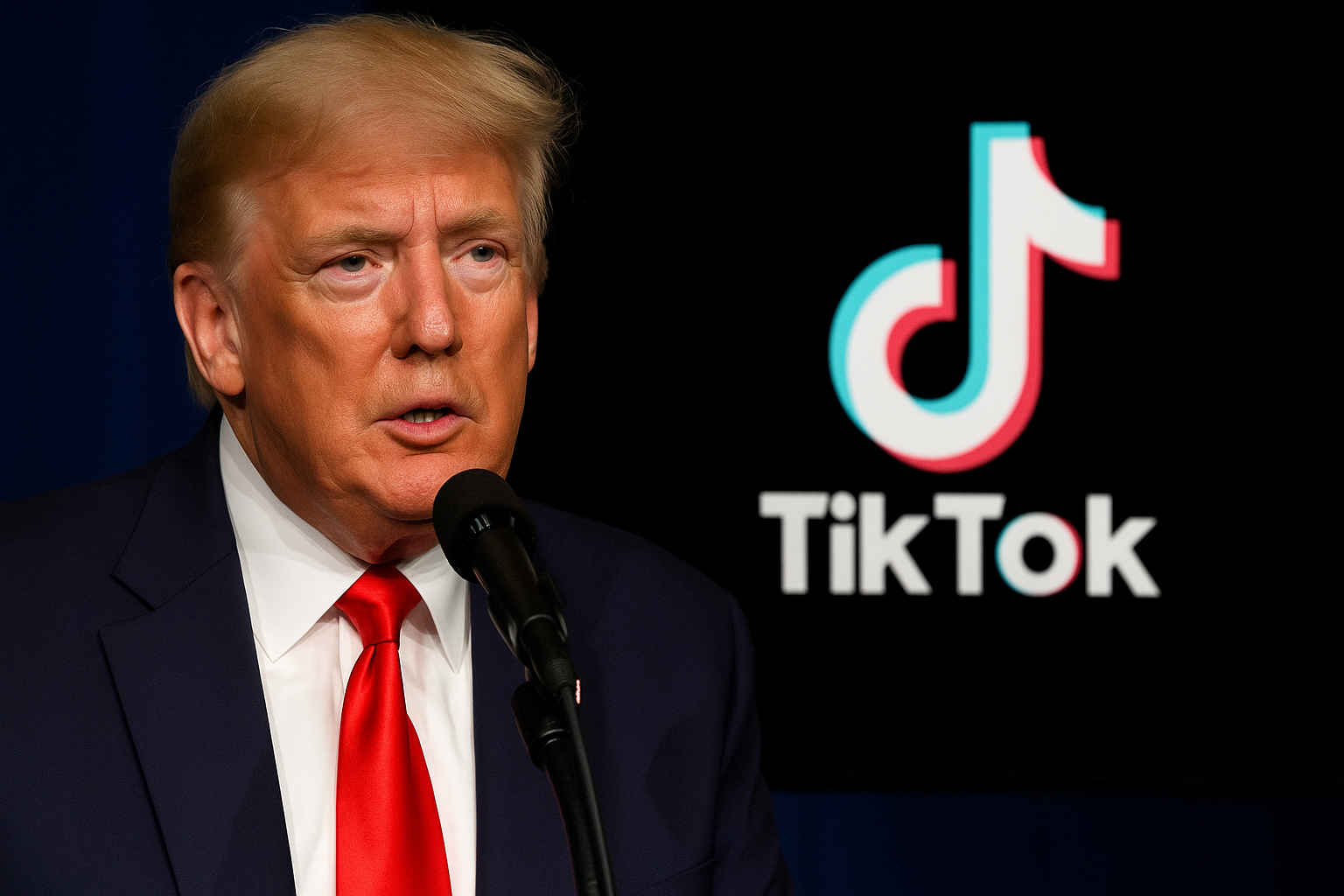President Donald Trump hinted that a deal to keep TikTok operational in the United States is near completion. The declaration follows months of negotiations between U.S. and Chinese officials as the app faced a looming, but delayed, ban. Trump revealed the update via Truth Social, stating that talks during a trade meeting in Europe had gone “very well.” He mentioned that a deal involving a popular company — clearly TikTok — had been reached.
What’s Happening & Why This Matters
This development comes after Congress passed a 2024 bill under then-President Joe Biden. It required TikTok’s Chinese parent company, ByteDance, to sell its U.S. operations or face a nationwide ban. In January 2025, the Supreme Court upheld the decision, setting a 17 September deadline for compliance.
Trump’s return to the White House in January 2025 delayed the shutdown several times while negotiations progressed. U.S. Treasury Secretary Scott Bessent confirmed that a “framework deal” has been struck between two private parties. However, he did not disclose details.
Trump’s Demands for TikTok
Trump has repeatedly stated that TikTok’s U.S. operations must either be sold outright or restructured. American entities must hold a controlling interest. He has suggested that U.S. investors and possibly the government should secure at least a 50% stake. This could be through a joint venture or direct ownership.
Several U.S. companies and groups have expressed interest:
- Microsoft, Amazon, and Oracle
- Billionaire Elon Musk, along with investor Frank McCourt, through the People’s Bid consortium
- A group led by Job Mobz founder Jesse Tinsley, which includes content creator Mr. Beast (Jimmy Donaldson)
- A reported bid from a16z, Susquehanna International Group, and General Atlantic, potentially involving Oracle.
Trump also floated the concept of creating a sovereign wealth fund financed by trade tariffs and other revenue streams to fund the purchase.
The Algorithm Question
A key unresolved issue is whether ByteDance must include TikTok’s algorithm in the sale. Analysts, such as Darío García de Viedma of the Elcano Royal Institute, note that without the algorithm, TikTok’s U.S. version might change drastically. This could disrupt creators who rely on TikTok’s recommendation engine to grow their audiences and income.
“If the algorithm stays in China, creators may need to migrate to other platforms to maintain their reach,” García de Viedma explained. Such a move would ripple across social, cultural, and political spheres, reshaping the so-called “TikTok economy.”
Bessent declined to answer questions about whether the algorithm is part of the deal.
Trade Talks & Strategic Concessions
Experts believe TikTok is a bargaining chip in broader U.S.-China trade negotiations. Both governments have been meeting regularly throughout 2025, with talks held in Geneva, London, Stockholm, and most recently in Madrid. Topics included tariff reductions and export control regulations.
García de Viedma suggested that TikTok’s future might be tied to trade concessions: “One side might concede TikTok while the other offers something in return, such as lowering tariffs or adjusting export policies.”
The final agreement could redefine TikTok’s operations but also the future of U.S.-China technology relations.
TF Summary: What’s Next
TikTok’s U.S. future remains uncertain, but Trump’s announcement signals that a last-minute deal could save the app from a nationwide ban. Details about the agreement, including whether TikTok’s algorithm is included and which U.S. entities will gain control, are still unclear.
MY FORECAST: The outcome will have wide-reaching effects on social media creators, tech companies, and the global digital economy. If finalised, the deal may affect U.S.-China trade relations and digital policy debates.
— Text-to-Speech (TTS) provided by gspeech


